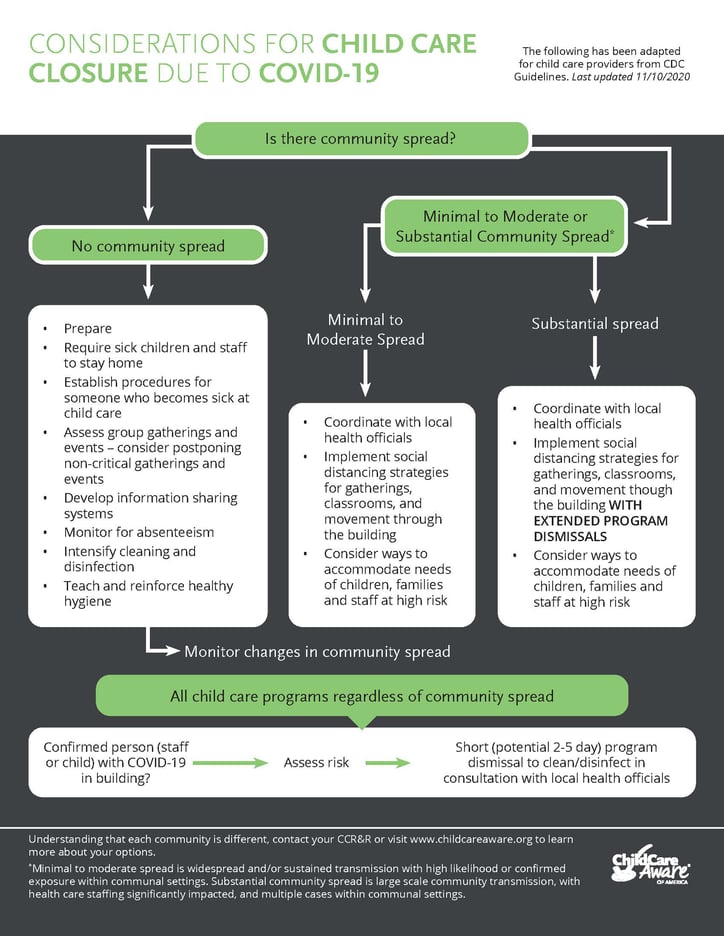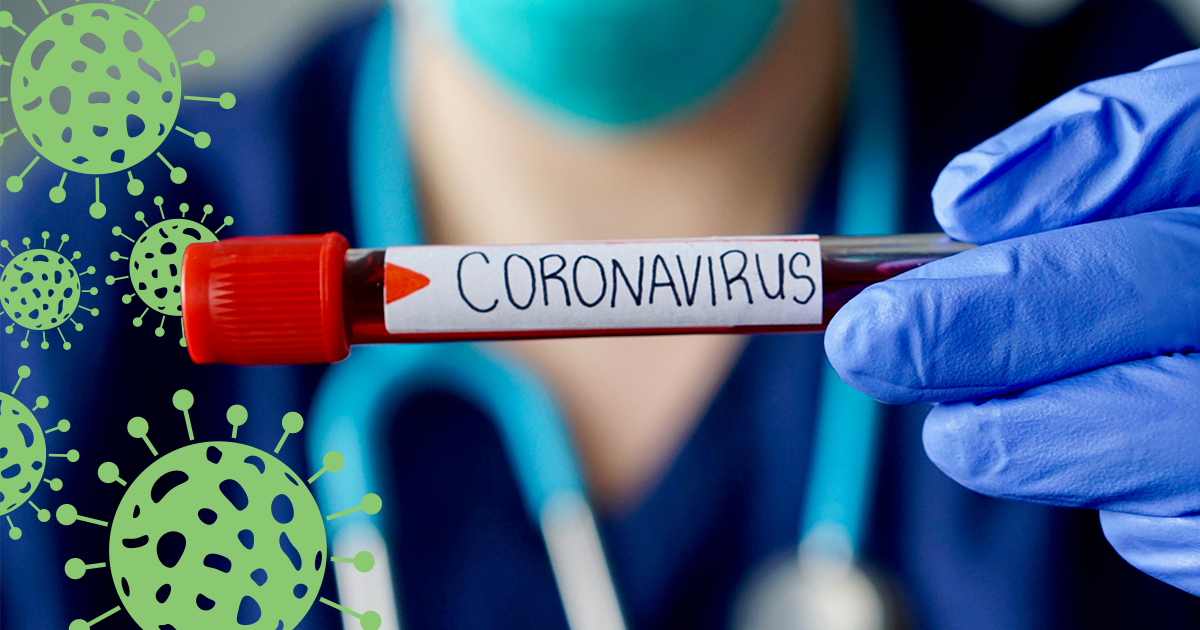Child Care Aware® of America (CCAoA) understands that this is an uncertain time for child care providers, as they make difficult decisions around what's best for the business, community and families they serve. The safety and well being of staff, family members and children is of utmost importance.
Note: This post and infographic were originally published on March 17, 2020 and were last updated with additional clarifications on November 25, 2020.
Ultimately, CCAoA recommends that if your local school district or state has taken action to close K-12 schools, that all child care programs should also close, with the exception of programs serving essential and emergency personnel (to be defined by your state or locality). Meeting the child care needs of families who play an important public health role (hospital personnel, first responders) has become a priority in our nation as the number of COVID-19 cases grows, and some traditional child care programs (with the proper training and resources) are able to adjust programming to accommodate this need. It’s imperative that the decision to close child care programs be tied to public and private support to pay for all operations and employee wages while they are closed.
Below you will find a decision tree that we've adapted from the CDC's guidelines for K-12 schools. These questions will help you determine whether to stay open or close in response to the Coronavirus (COVID-19) pandemic.








